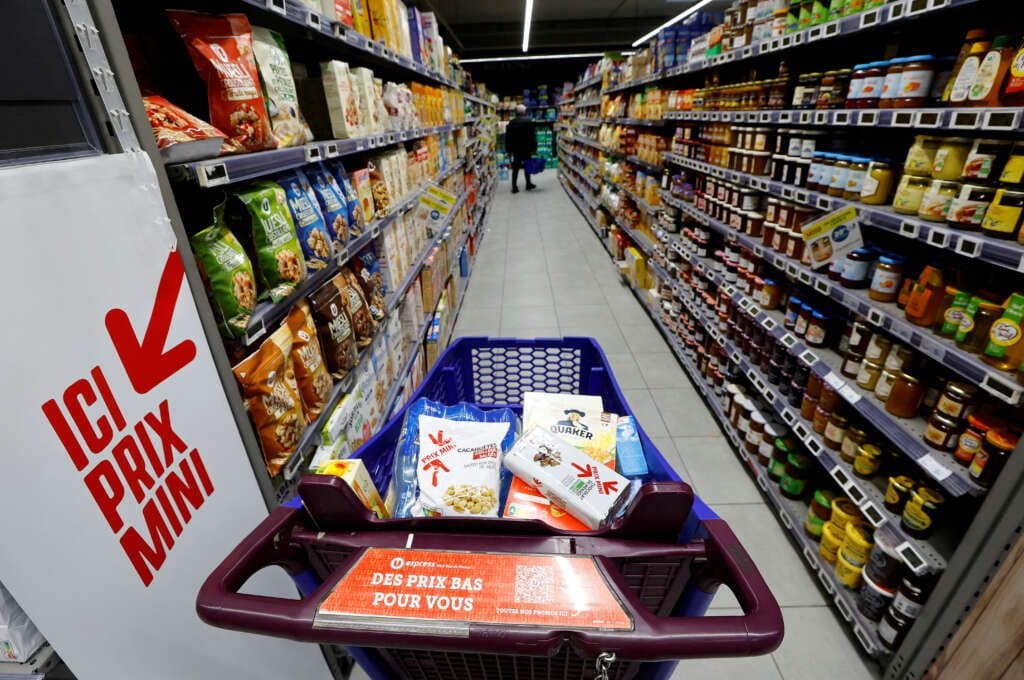
FRANKFURT (Reuters) – Euro zone inflation eased a touch in February but underlying price growth continued to accelerate on a surge in services costs, the EU’s statistics agency Eurostat said on Friday, confirming preliminary data released earlier this month.
Consumer price inflation in the 20 countries sharing the euro currency eased to 8.5% in February from 8.6% a month earlier as a big fall in energy costs was offset by a price surge in nearly all other areas.
Underlying price growth meanwhile continued to accelerate and inflation excluding volatile food and fuel prices, an indicator closely watched by the European Central Bank, jumped to 5.6% from 5.3%.
The ECB raised interest rates by another 50 basis points on Thursday to fight off a historic surge in prices and its new projections showed that underlying price growth will be stubborn for years to come, staying above its 2% target through 2025.
This is likely to worry policymakers because underlying price growth, often fuelled by rising wages, tends to prolong overall inflation, making it even more difficult to tame.
While the ECB omitted a usual inflation risk assessment from its policy statement on Thursday, some policymakers have already said that risks were skewed towards higher outcomes because core inflation is proving to be sticky.
Indeed, the contribution of services to overall inflation doubled in a year, a worry since the sector is the most sensitive to wage growth.
Overall inflation is likely to keep easing in the coming months, mostly on lower energy prices, but underlying price growth could continue to tick up and its decline is also likely to be protracted, policymakers and analysts say.
(Reporting by Balazs Koranyi; Editing by Andrew Cawthorne)


